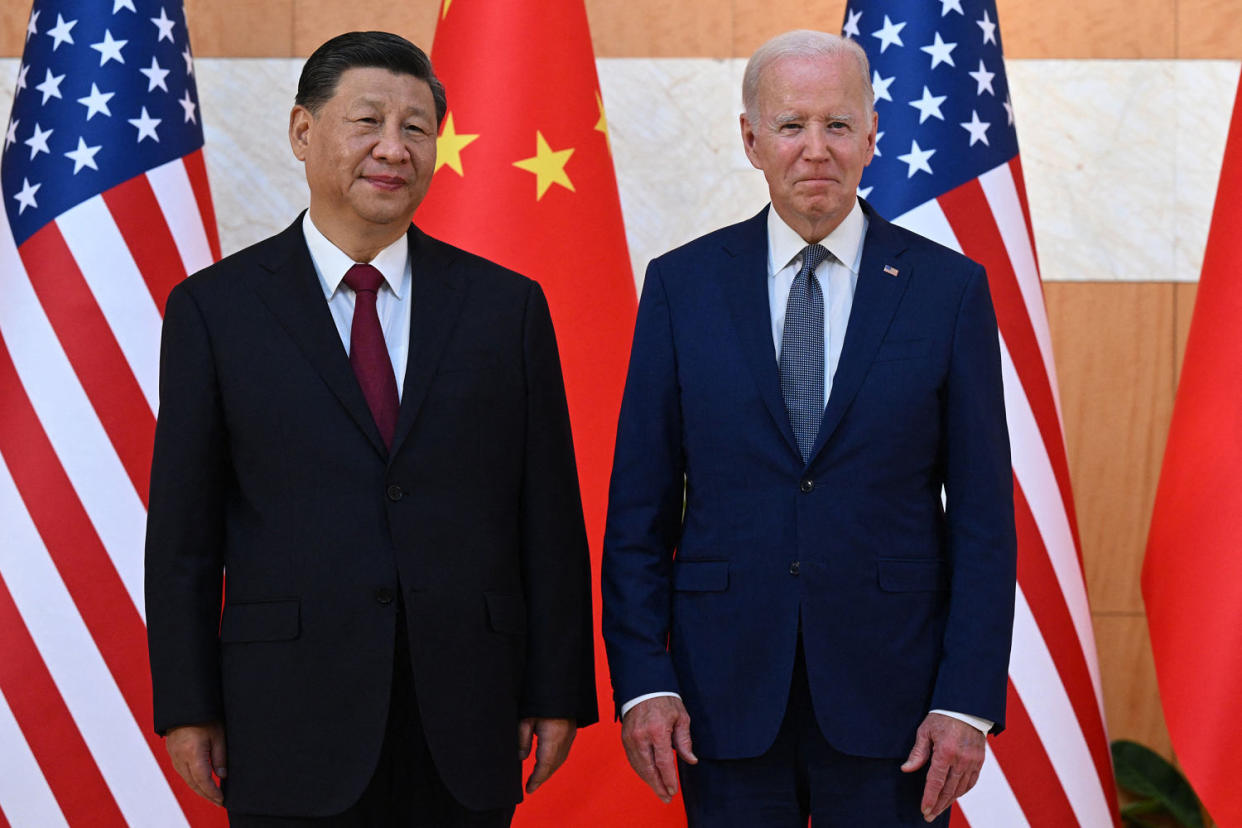U.S. and Chinese military commanders speak by phone for the first time in years

WASHINGTON — The U.S.’ top commander in the Indo-Pacific region spoke with his Chinese counterpart Monday night, according to three U.S. officials familiar with the planning, as the two superpowers try to rebuild military ties in an effort to avoid conflict.
Adm. Samuel Paparo, commander of U.S. Indo-Pacific Command, spoke with Gen. Wu Yanan, the commander of China’s Southern Theater, which is responsible for Beijing’s vast claims over the South China Sea. The call was the first time in years that the two regional military commanders have engaged in a formal conversation.
The Chinese Defense Ministry also confirmed the call, saying the two sides “exchanged in-depth views on issues of common interest.”
During the video teleconference, Paparo emphasized the importance of sustained communication between the two militaries to “reduce the risk of misperception or miscalculation,” according to a White House readout of the call.
Citing multiple recent “unsafe interactions” between China’s People’s Liberation Army and U.S. allies, Paparo said the Chinese military had an obligation “to comply with international laws and norms to ensure operational safety,” the readout said.
Paparo also urged the Chinese military to reconsider what he said was its use of “dangerous, coercive and potentially escalatory tactics in the South China Sea and beyond,” it added.
Both men are relatively new in their roles: Paparo assumed command in May, while Wu was appointed in July. The two commanders had a “constructive and respectful” discussion, the White House readout said, and Paparo noted the importance of continued communication with Wu and the leaders of China’s four other theaters.
Paparo’s predecessor, Adm. John Aquilino, had a standing request to meet with the commanders of China’s Southern Theater, as well as its Eastern Theater, whose jurisdiction includes the Taiwan Strait, but China never agreed. Chinese leader Xi Jinping cut off military communications in 2022 after Rep. Nancy Pelosi, D-Calif., the House speaker at the time, visited Taiwan, a self-governing island democracy that Beijing claims as its territory.
U.S. Indo-Pacific Command is responsible for both the South China Sea and the Taiwan Strait, where tensions are rising amid clashes between China and U.S. allies with which it has territorial disputes, particularly the Philippines. The Philippine navy said Tuesday that it had logged 207 Chinese coast guard, military and maritime militia vessels in waters claimed by Manila from Sept. 3 to Monday, local media reported, the highest one-week figure this year.
A series of confrontations between China and the Philippines in the South China Sea has raised concern that the U.S., which has a mutual defense treaty with Manila, could be drawn into conflict with Beijing. Though Philippine officials have so far downplayed the idea of U.S. ships’ providing escorts to Philippine vessels in the region, Paparo said last month that it was “an entirely reasonable option.”
China accuses the Philippines of illegally entering its territorial waters and says it is acting in accordance with international law. A commentary Monday in the state-run newspaper People’s Daily said China-Philippine relations were “at a crossroads.”
Concerned by the lack of avenues for discussing these issues, Xi and President Joe Biden agreed to resume high-level military communications at a summit in California in November. Both countries announced plans for a call between their military theater commanders after Jake Sullivan, Biden’s national security adviser, visited Beijing late last month.
A senior administration official said re-establishing this specific communication channel between the U.S. and China was a priority on Sullivan’s trip.
The two countries also said Biden and Xi would speak by phone in the coming weeks, which would be their first interaction since April. A phone call raises the possibility of another in-person meeting between the two leaders before the end of Biden’s term.
The U.S. is also sending a deputy assistant secretary of defense to this week’s Xiangshan Forum in Beijing, placing “unprecedented focus” on the high-level security conference, Chinese state-run media outlet Global Times reported last week, citing organizers.
The last time the Pentagon sent a deputy assistant secretary of defense to the forum, which was canceled for several years during the Covid-19 pandemic, was 2019.
Courtney Kube and Carol E. Lee reported from Washington and Jennifer Jett from Hong Kong.
This article was originally published on NBCNews.com
